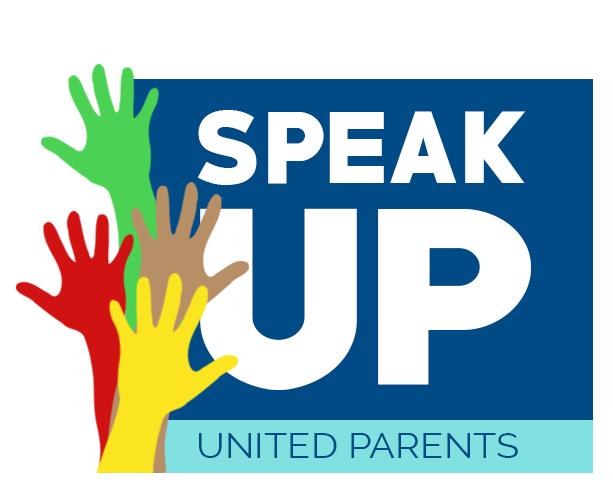Why Aren’t L.A. Public Schools Opening for High-Needs Kids, When the County Health Department Allows it?
/Kids in Los Angeles have been forced to learn online only even though the Health Department says it’s now safe to reopen for 25% of high-needs kids.
The Los Angeles County Department of Public Health said Los Angeles public schools could reopen for 10% of its highest-needs kids back in mid-September, a figure that was expanded to 25% last week after Speak UP released a survey showing that two-thirds of kids with disabilities are regressing during distance learning.
The Health Department is also accepting waivers for K-2 elementary schools to open, with priority given to low-income kids who have experienced severe learning loss during distance learning.
So why hasn’t Los Angeles Unified opened its doors to these high-needs kids, including English Learners, kids with disabilities and the youngest learners for whom distance learning not only isn’t working but is causing, in many cases, tremendous suffering?
As The New York Times reported Thursday, it all goes back to a clause that LAUSD agreed to in the deal it struck with the United Teachers Los Angeles union right before the start of the school year. A little-noticed clause in that deal (see No. 1 under Compensation, Evaluation, Benefits and Leaves) specified that no employees could be required to return to campus until it was deemed safe for all employees to return or unless a new bargaining agreement was reached.
LAUSD Board members are now saying campuses will not reopen before January in large part because that agreement with the teachers extends until the end of the calendar year.
Much could hinge on the outcome of Tuesday’s school board elections. UTLA is now bargaining with LAUSD on the terms of reopening and is claiming that it’s unsafe to reopen for small groups of high-needs kids, despite the Los Angeles County Health Department saying otherwise.
UTLA funded the campaigns of the current four-member school board majority, including current Board President Richard Vladovic (BD7), but Vladovic is retiring, and Scott Schmerelson (BD3), another of the four, is running to keep his seat.
If teacher/attorney Tanya Ortiz Franklin wins Vladovic’s open seat, or if parent and Granada Hills High employee Marilyn Koziatek unseats Schmerelson in the San Fernando Valley, then the balance of power on the school board could shift.
A new board, without a majority of members whose campaigns were funded by UTLA, would be more likely to have arms-length negotiations with the union and, perhaps, more willing to balance employee interests with those of students and parents.
Both Ortiz Franklin and Koziatek, who are endorsed by Speak UP, have voiced support for allowing the highest-needs kids to return to campus.
Schmerelson, who seemed entirely unaware at Speak UP’s candidate forum that the Health Department was allowing high-needs kids back on campuses, echoed UTLA’s views, saying that no one would return to campus until it’s “100 percent safe” for all to return. He said that what the district was doing was the best that could be done for kids with special needs, even though other nearby districts and private schools are reopening campuses to serve high-needs kids.
His opponent, Koziatek, who herself reports to work on campus at Granada Hills High, said LAUSD needs to rely on science and believe Health Department officials when they say it’s safe, rather than disputing the Health Department, as UTLA has done.
Ortiz Franklin has said that those closest to the classroom and all stakeholders should be surveyed, and LAUSD should at least find a way to pair up those teachers who are willing to return now with the high-needs kids desperate to return. A UTLA survey last week showed that about 35% of teachers are happy to return to campus.
Ortiz Franklin, who previously worked as a special education attorney, added that it was unconscionable that LAUSD had not found a way to assess the thousands of kids in limbo needing to be evaluated for their Individualized Education Programs.
While UTLA and LAUSD recently struck an agreement to allow its employees to conduct assessments on a voluntary basis, most parents are still waiting, and UTLA has yet to allow its members to provide federally mandated special education services such as speech and occupational therapy in person. (UTLA’s president said on Friday that will change soon -- too late for the 75% of kids who have regressed in some cases to the point of self harm.)
As Speak UP Founder and CEO Katie Braude told The New York Times, all of this is “ironic” given the fact that LAUSD has taken unprecedented steps to allow campuses to safely reopen, including universal COVID testing for everyone who steps foot on campus, upgraded HVAC systems with the equivalent of N95 filters, electrostatic cleaning, PPE and social distancing in a hybrid model with fewer students on campus at once.
“The district has really gone out of its way on that front and they’re still not able to get kids back on campus who really need to be on campus,” Braude told The New York Times, adding that “these kids are all losing out, and these are the kids who are already falling behind.”
“This exacerbates existing inequities because families of means increasingly have the choice to send their children to school in person or get them the help they need,” Braude said.
As a result, Los Angeles County last week dropped the requirement that employee unions write a letter of support as a condition for applying for waivers. Nevertheless, LAUSD cannot move forward with its current UTLA agreement in place, and UTLA is showing no signs of budging.




